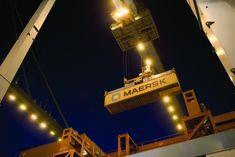
New Zealand apple exporters are up in arms over “cock-ups” by shipping giant Maersk that are seriously overshadowing the start of their season.
Senders, who were too fearful to be named, described the shipping situation variously as “chaos”, “like a bus wreck” and “carnage” to FPJ. One believed that being named would lead his business to being “even more severely disadvantaged” by Maersk.
“As an industry we have been having weekly meetings with them [Maersk] but this situation is potentially going to turn into a catastrophe,” said one exporter to Europe. “At the port of Napier, 81 containers were left off the first vessel of the season. Our experience is that if you get behind like that you just never catch up. Last year was a disaster and they are already making mistakes right at the beginning of the season again this year.”
Other senders allege that although Maersk charges the highest rates, it is not reflected in its service. “They send containers to the wrong ports and roll containers off a ship, leaving them behind,” said another. “Ever since the merger with P&O there has been a change of personnel and philosophy. They perform the worst but charge like stuck bulls. For us in the industry it is a matter of dealing with the carnage.”
Another top-fruit exporter said his customers in export destinations begged him not to use Maersk. “But what choice do we have?” he said. “They ship at the wrong temperatures, send us the wrong invoices and sometimes we learn from our customers, five weeks after a vessel has sailed, that the fruit was not on it.”
Maersk New Zealand managing director Tony Gibson acknowledged that a lack of availability of controlled atmosphere (CA) containers had caused problems for early-season apple shipments.
“Despite early planning on this issue and efforts to anticipate demand, we were not able to get equipment into New Zealand early enough and we acknowledge grower concerns,” he said.
Competition from South American and South African markets had accentuated constraints caused by a global shortage of CA containers, Gibson added, pointing out that the Danish operator has been in regular contact with customers to address the issues, and was seeking to learn lessons for future seasons.
“We accept that some sectors of the industry are frustrated and feel let down.
“We are as frustrated about the situation, but the shortage of CA containers is not a new issue globally and is one on which we are working very hard on behalf of our New Zealand apple customers.”
Although some early-season varieties have suffered the impact of these problems, Gibson said he is hopeful that sufficient CA containers will be available for the Braeburn season later in the year.
Apple exporters also say the problem is compounded as they are in competition with other perishables sectors for CA space.
“Maersk prioritises certain sectors,” said one disgruntled logistics manager. “The dairy people have the top priority and then meat. We come about mid-way down the table. We are incredibly concerned that this will seriously damage our export business.”



